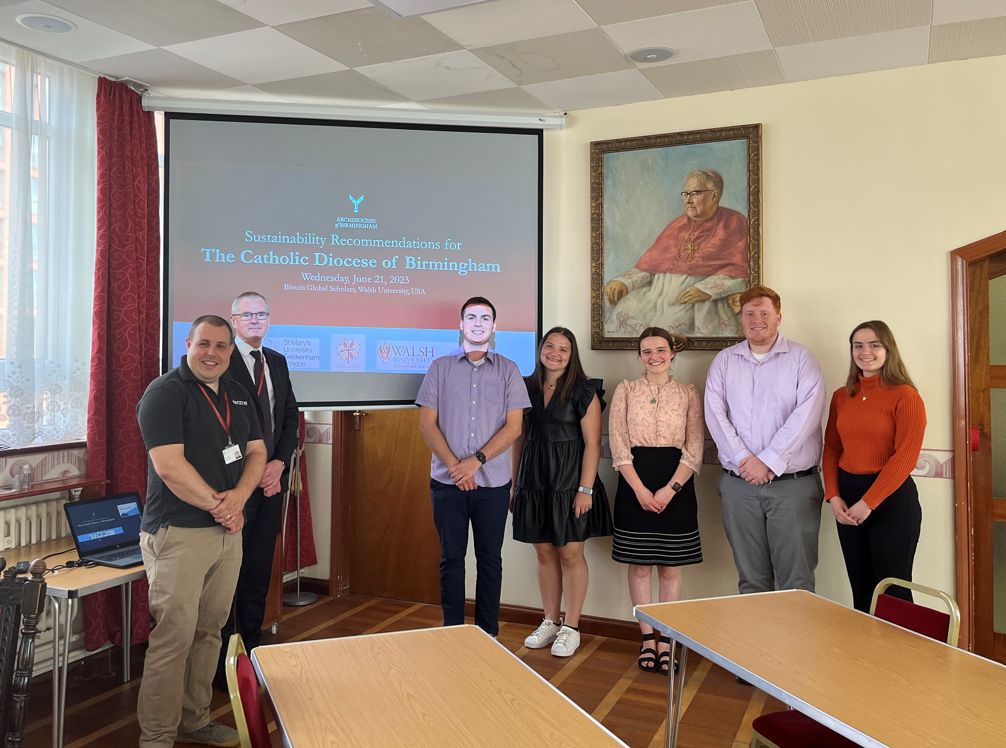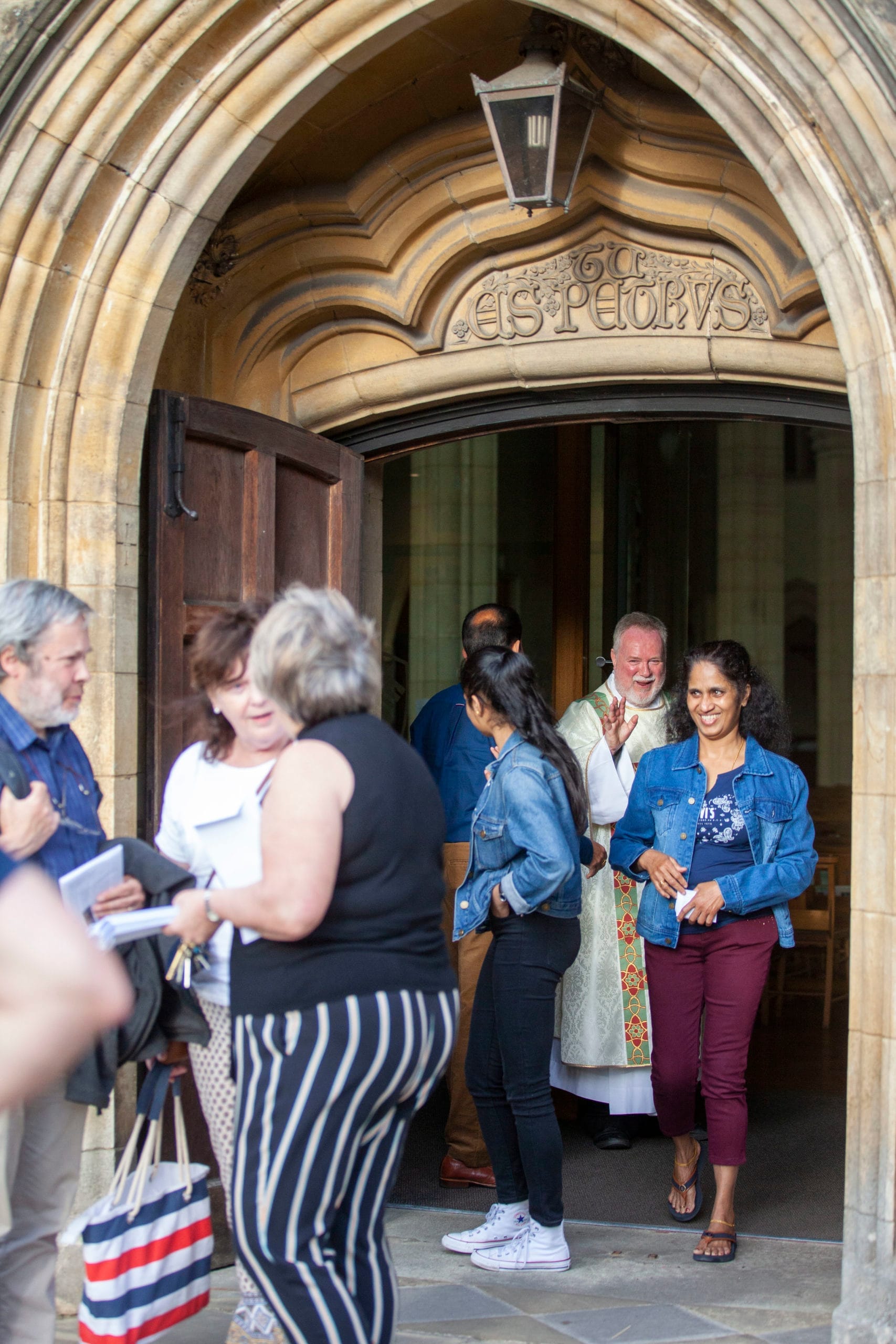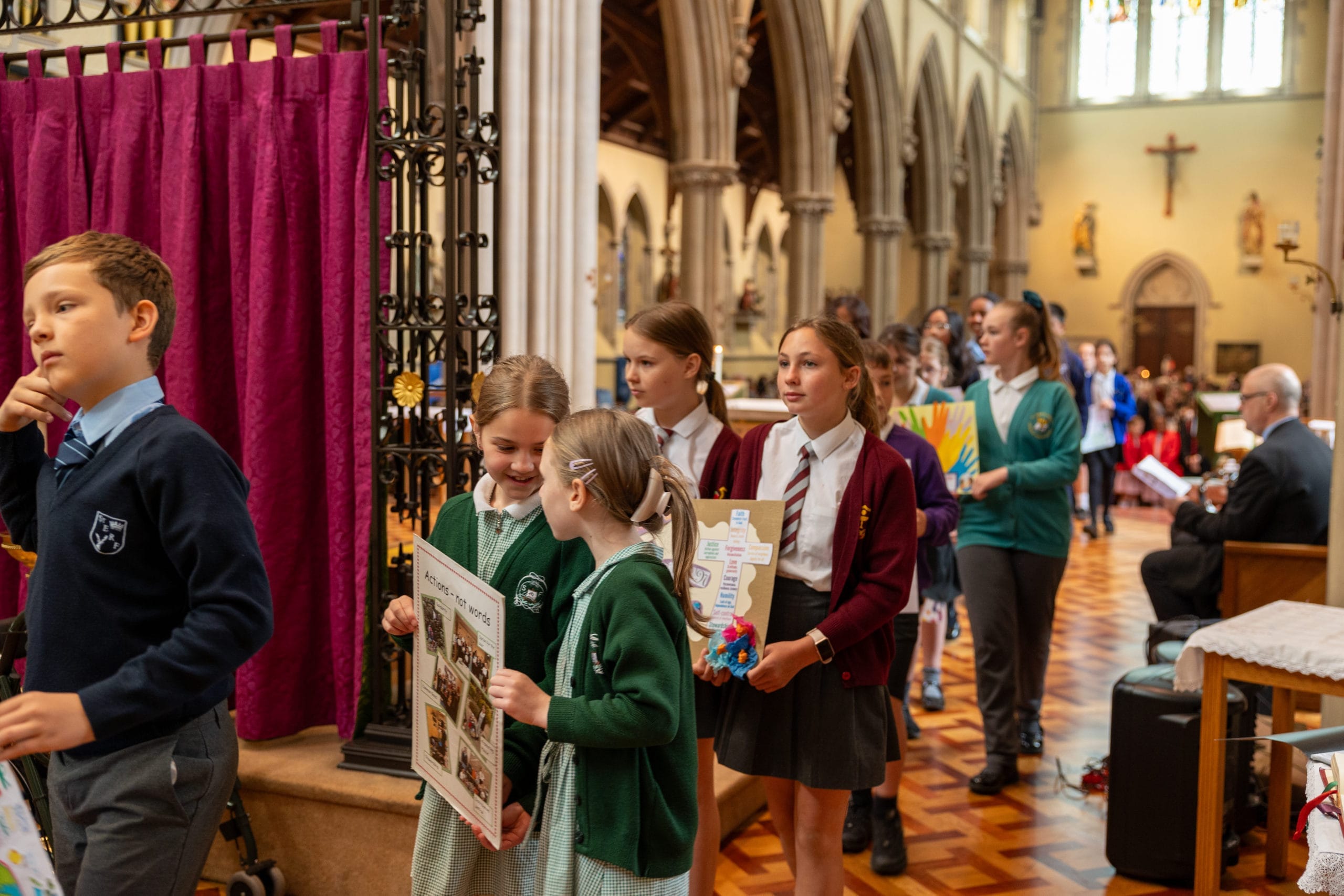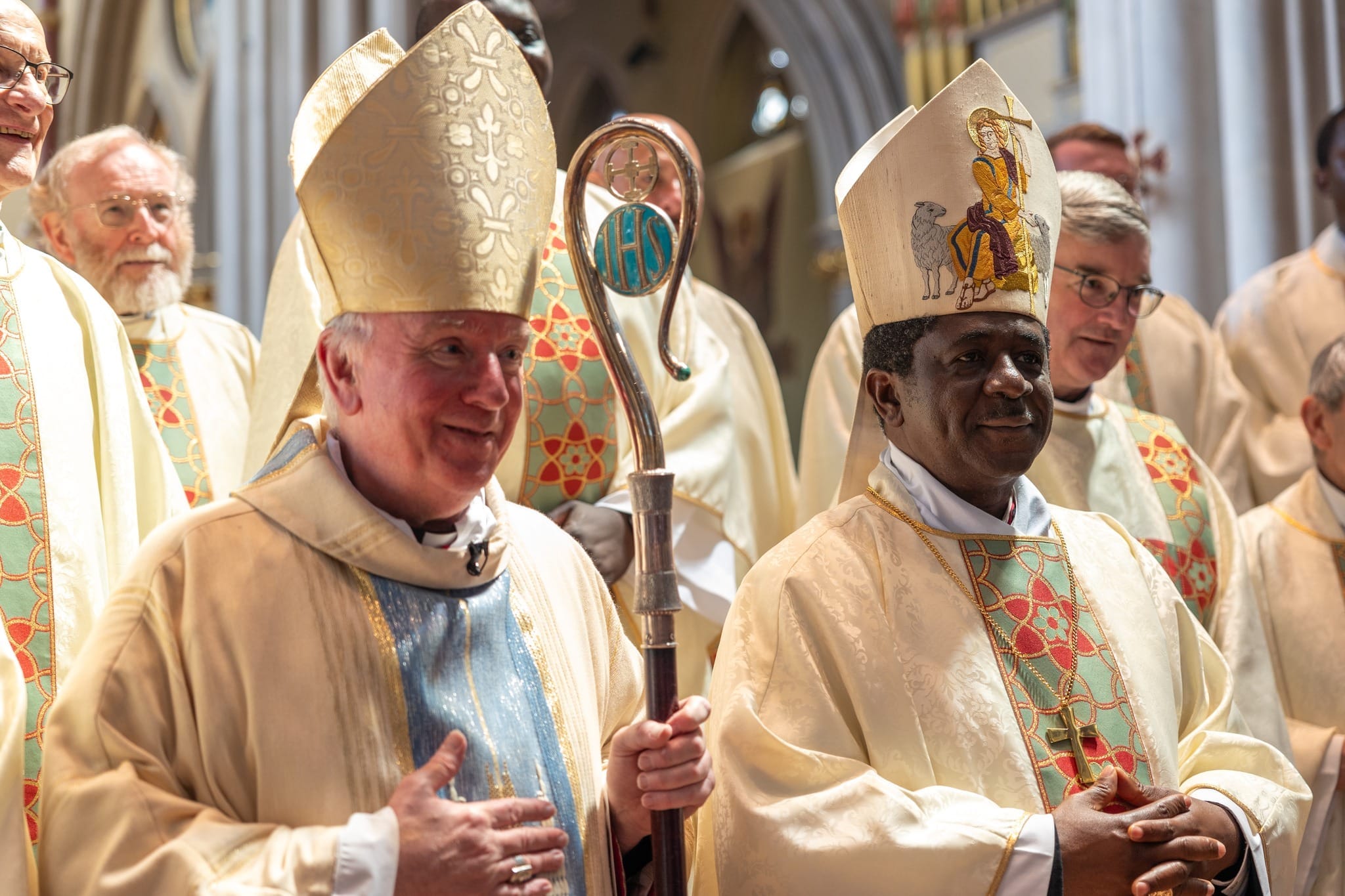This summer, Blouin Scholar students from Walsh University (a Catholic University in North Canton, Ohio) travelled to London with the aim of assisting Catholic dioceses in England including the Catholic Diocese of Portsmouth, in applying the ‘Guardians of Creation’ methodologies for carbon accounting.
The Guardians of Creation project is a collaboration between Salford Diocese, St Mary’s University, Twickenham and the Laudato Si’ Research Institute (LSRI), providing a systematic framework for decarbonising dioceses, responding to the call from Laudato Si’ to turn our concern into practical action.
21 students from Walsh spent time analysing data and making recommendations in Portsmouth, Clifton, Northampton dioceses and Birmingham Archdiocese. The students also visited Westminster diocese to discuss their carbon accounting journey, as well as receiving input from Plymouth diocese over video call.
Founded in 2012, the Blouin Scholars Program is named after the late Brother Francis Blouin, Walsh’s third president and a member of the Brothers of Christian Instruction, who founded Walsh in 1960. The Blouin Scholars Program is dedicated to using scholarship and service to address local and global challenges. This four-year program is designed to foster change-makers in the community and develop leaders in service to others.
The students were given an induction to the Laudato Si’ Research Institute by Revd. Dr. Tim Howles, Associate Director at the LSRI, who explained the Institute mission in the context of stories of the environmental movement over the past decades, and the papal teaching that inspired the development of the LSRI. The students also received input on the progress dioceses in England and Wales have made on responding to Laudato Si’ from Edward de Quay, the LSRI Integral Ecology Projects Officer.
Under supervision from Professor Roland Daw at St Mary’s University, students worked through energy usage data from participating dioceses in order to set a baseline carbon footprint. By understanding their starting point, dioceses are then able to monitor improvements in energy efficiency over time. The intention was also to determine what data was missing, and make informed judgements about how to progress in light of these gaps.

The students came from a range of disciplinary backgrounds. Nursing student Hannah Olszewski said the project helped her to stretch her skill set. “For me, it was really transformational … it was really interesting to me to see the interdisciplinary approach, what we were able to accomplish with all of us being different majors and having different specialties.”
Hannah added that for her, the trip was about more than the science. “One thing that really got talked about in our group was seeing the humanity behind what we were doing. We weren’t just dealing with numbers and carbon accounting, which I didn’t fully understand until this trip. But we were dealing with the impact that this has on people. Laudato si’, the document that Pope Francis wrote, talks about the common call for us to care for our creation because it’s our home. I think, in this work, we were able to see the direct impact that we have; how we can make changes, and the ways in which we can be inspired to come together, even from different cultures literally across the world.”
Nick Morris, the Blouin Scholars Program faculty director, said that the UK project has transformed the students. “They’ve gone from being students interested in service, to students who are competent in service-learning, to leaders in service and now contributing members of public scholarship,” he said.
There are plans for the students to present their experiences this fall to the Diocese of Youngtown’s Office of Peace and Justice, based on their research in the UK.
Despite its development in the UK, the Guardians of Creation framework has applicability to faith-based organisations anywhere in the world, especially organisations looking to translate Laudato si’ into practical action. Seven reports and supplementary materials each dealing with a separate aspect of diocesan decarbonisation. These are all available here.
This article was adapted with permission from Walsh University. The original article can be found here.





